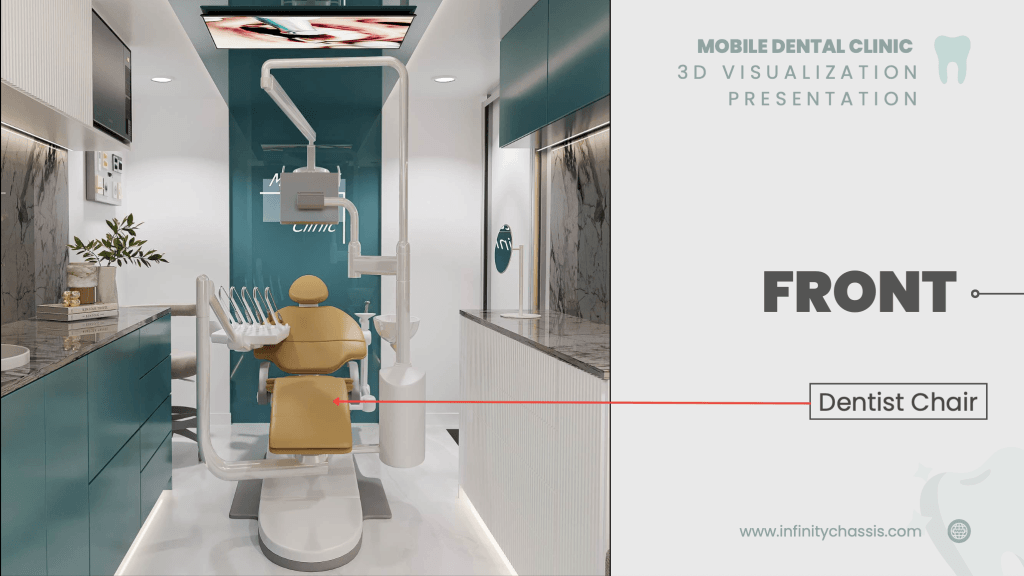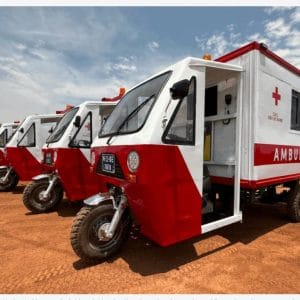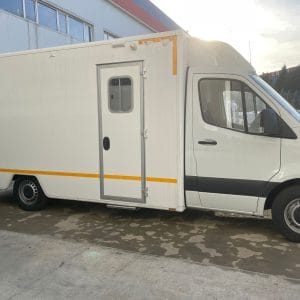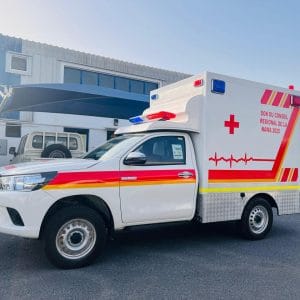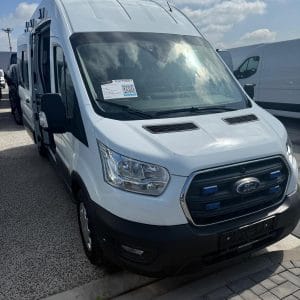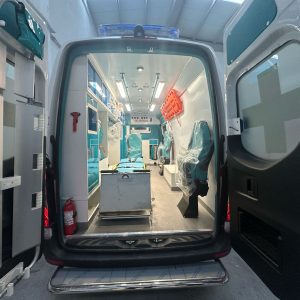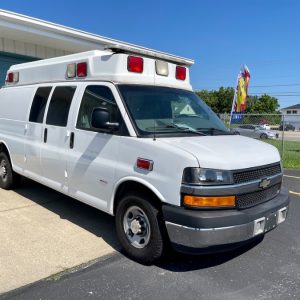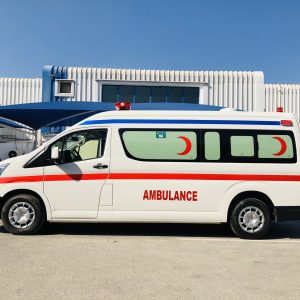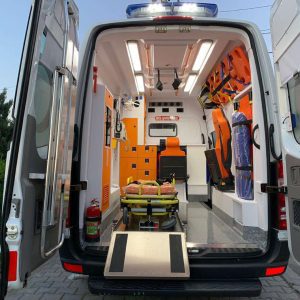Mobile Dental Unit Manufacturer; The landscape of modern dentistry is evolving, breaking free from the confines of the traditional four-walled practice. Mobile dentistry is a powerful, growing field that brings essential oral healthcare directly to patients in schools, nursing homes, corporate offices, and underserved communities. At the heart of this movement is the mobile dental unit (MDU)—a fully-functional dental clinic on wheels.
If you’re considering investing in a mobile dental unit, the single most critical decision you will make is choosing the right mobile dental unit manufacturer. This isn’t just a purchase; it’s a long-term investment in your practice’s mobility, efficiency, and growth. This guide will walk you through the key factors to consider to ensure you partner with a manufacturer that delivers on quality, compliance, and performance.
Why Go Mobile? The Undeniable Benefits of a Mobile Dental Practice
Before diving into manufacturers, it’s important to reaffirm the “why.” Investing in an MDU opens up a world of opportunities:
- Expand Your Reach: Serve patients who face barriers to accessing traditional care, including elderly residents in care homes, children in schools, and employees at their workplaces.
- Diversify Your Revenue Streams: Create new, profitable contracts with government agencies, school districts, and private corporations for on-site dental services.
- Build Community Presence: Enhance your practice’s reputation by becoming a known provider of compassionate, accessible care.
- Operational Flexibility: Respond to community needs, set up at health fairs, and deploy services wherever they are needed most.
Key Factors to Consider When Choosing a Mobile Dental Unit Manufacturer
Not all manufacturers are created equal. The right partner will understand the unique clinical and logistical challenges of working in a mobile environment.
1. Experience and Reputation
Look for a manufacturer with a proven track record. How long have they been in business? Do they specialize in dental vehicles, or are they a general van converter? A company with deep experience in the dental field will anticipate needs you haven’t even considered.
- What to ask: “Can you provide a portfolio of past dental unit builds?” and “Do you have client testimonials or references I can contact?”
2. Customization Capabilities
Your mobile practice should be a perfect extension of your brand and workflow. A top-tier manufacturer won’t offer a one-size-fits-all solution. They should work with you to customize the layout, cabinetry, technology integration, and branding.
- What to ask: “What is your design process like?” and “How involved can I be in selecting finishes, layout, and equipment?”
3. Quality of Construction and Materials
A mobile dental unit is subjected to constant movement, vibration, and varying climates. The construction must be incredibly durable. Inquire about the materials used for cabinetry (e.g., medical-grade, easy-to-clean surfaces), the frame structure, and the overall build quality. It should feel as solid as a traditional operatory.
- What to ask: “What materials do you use for countertops and cabinetry to ensure durability and infection control?” and “How do you secure equipment during transit?”
4. Compliance and Safety Certifications
This is non-negotiable. Your vehicle must comply with a myriad of regulations, including those from the Department of Transportation (DOT), the Occupational Safety and Health Administration (OSHA), and the Americans with Disabilities Act (ADA). The manufacturer must be well-versed in these requirements.
- What to ask: “Can you guarantee compliance with OSHA, ADA, and state-level healthcare vehicle regulations?” and “What safety features are standard?”
5. Integration of Dental Equipment
The best manufacturers either partner with leading dental equipment brands or have the expertise to seamlessly integrate the technology you already own and trust—whether it’s your preferred dental chair, X-ray system, or CAD/CAM unit. The unit must have a robust electrical system to support this equipment.
- What to ask: “Can I supply my own equipment for you to install?” and “What is the power capacity (inverter, generator, shore power) of the unit?”
6. Chassis and Vehicle Options
Manufacturers often offer builds on different chassis (e.g., Mercedes Sprinter, Ford Transit, Ram ProMaster). Consider your needs for size, drivability, and parking. Do you need a compact van or a larger bus? A good manufacturer will guide you toward the best chassis for your specific operational goals.
- What to ask: “What chassis do you recommend for a two-operator model?” and “Do you handle the vehicle acquisition process?”
7. Warranty and Post-Sale Support
Your relationship with the manufacturer shouldn’t end at delivery. Comprehensive warranties on both the vehicle and the conversion are essential. Even more important is their responsiveness for maintenance, repairs, and technical support after you hit the road.
- What to ask: “What does your warranty cover and for how long?” and “What is your process for providing service and support after I take delivery?”
Profiles of Leading Mobile Dental Unit Manufacturers
While many companies offer conversion services, a few have established themselves as leaders in the dental niche.
- **Company A (The Custom Luxury Specialist): Known for high-end, fully customized coaches and large vehicles. They often work with practices looking for multiple operatories and premium finishes. Ideal for large-scale community health initiatives.
- Company B (The Agile Van Expert): Specializes in mid-size van conversions (like Sprinters and Transits) that are easier to drive and park. They excel at creating efficient, space-optimized layouts for single-operatory practices focusing on agility.
- Company C (The Technology Integrator): Focuses on cutting-edge tech, offering fully integrated digital suites, including built-in panorex units, intraoral scanners, and telehealth capabilities. They are a great choice for the tech-forward practice.
- Company D (The Value Leader): Offers more standardized, yet high-quality, models that provide an excellent balance of features and affordability. A strong option for those entering mobile dentistry with a clear budget.
(Note: For an actual blog post, you would replace “Company A, B, etc.” with the actual names of manufacturers you want to target, using their primary keywords as anchor text for SEO, e.g., “Advantage Mobile Medical is known for…”)
The Investment: Understanding the Cost
The cost of a mobile dental unit can vary widely based on size, customization, and equipment, typically ranging from $150,000 to over $500,000. While it’s a significant investment, view it as a revenue-generating asset. Many manufacturers can provide guidance on financing options or help you structure a business plan to justify the ROI.
Frequently Asked Questions (FAQ)
Q: How long does it take to build a custom mobile dental unit?
A: The process typically takes between 6 to 12 months from design to delivery, depending on the complexity and the manufacturer’s backlog.
Q: Can the unit run off electrical hookups (“shore power”)?
A: Yes, all quality units have a shore power connection. They also have a powerful inverter and often an onboard generator to run all equipment anywhere.
Q: Who handles licensing and insurance for the vehicle?
A: The manufacturer will typically handle the vehicle title and registration, but you will need to secure commercial auto insurance for your new mobile clinic.
Final Thoughts: Your Mobile Practice Awaits
Choosing a mobile dental unit manufacturer is a decision that will define the success of your mobile practice for years to come. By prioritizing experience, customization, quality, and support, you can find a partner who will build you a clinic that is not just a vehicle, but a testament to your commitment to patient care.
Ready to take the next step? Contact us today for a consultation and let us help you navigate the journey to bringing vital dental services directly to your community.
Word Count: Approximately 1,050 words.
SEO Notes:
- The primary keyword “mobile dental unit manufacturers” is used in the title, headings, and naturally throughout the body.
- Secondary keywords are woven in, such as “custom mobile dental van,” “dental equipment integration,” “compliance,” “cost,” and “manufacturing process.”
- The content is structured for readability with clear headings, bullet points, and an FAQ section.
- A strong call to action (CTA) is included at the end.
- The section on manufacturer profiles is designed to be easily updated with specific company names and links for SEO value.


